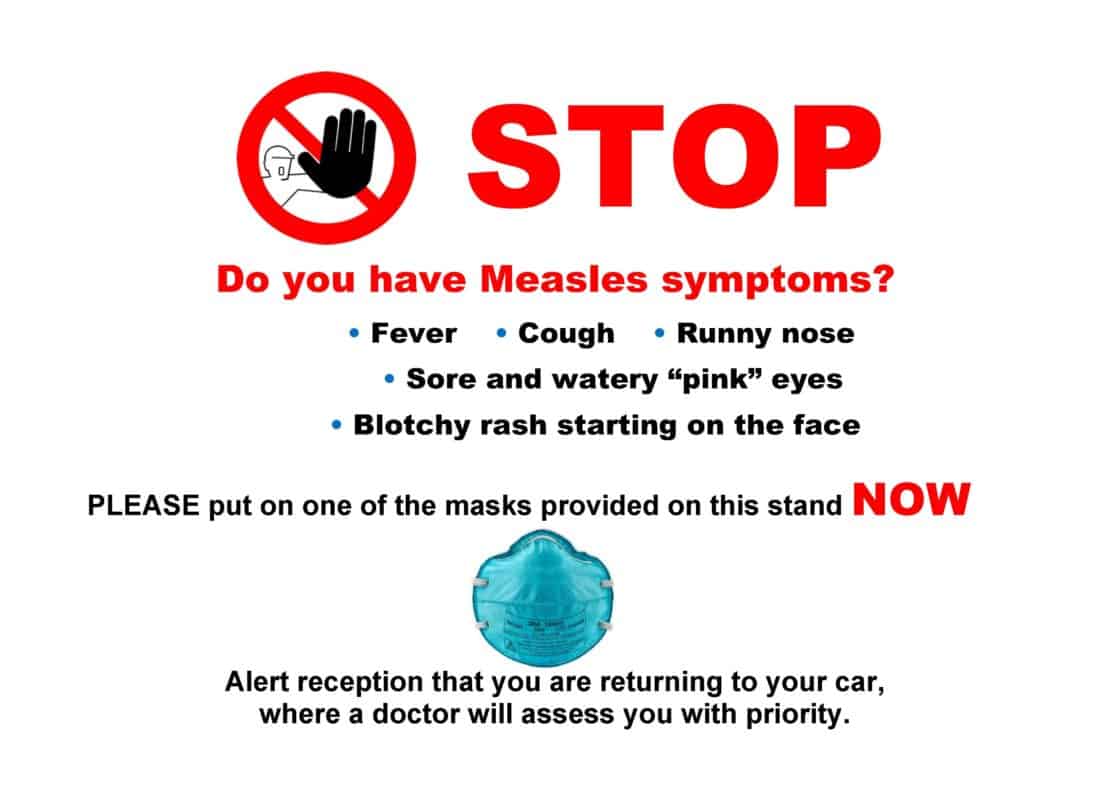Friday 13 September 2019Media release4 minutes to read
THIS IS AN ARCHIVED PAGE. The advice and information contained in this page may not be current and it should only be used for historical reference purposes.

A new case of measles has been confirmed in the Canterbury region
An infant in the Canterbury region has been confirmed as having measles.
The infant and their family returned to Christchurch from Auckland where there is a major measles outbreak, with more than 1000 cases confirmed. It is thought that this is where they contracted the highly infectious disease.
The infant had not yet received their first dose of the measles, mumps and rubella (MMR) vaccine which is routinely given at 15 months, with a second one at four years of age.
This infant has not been taken to public places while infectious, so members of the public do not need to be concerned that they have been exposed.
Canterbury DHB’s Community and Public Health team has been working to identify all family members and close contacts, determining their immunisation status and offering vaccination if appropriate.
Dr Alistair Humphrey, Canterbury Medical Officer of Health, says the message from the Ministry of Health is clear – if you are not fully vaccinated you should not travel to Auckland.
“It's important to make sure you're immunised two weeks before travelling. It takes up to two weeks for your immunity to develop.
“If you are unwell, telephone your General Practice team and explain the symptoms. It is now more important than ever that people who are unwell do not travel,” says Dr Humphrey.
People are considered immune if they have received two doses of MMR vaccine, have already had measles previously, or were born before 1969 – people born before this time will have been exposed to measles and most will therefore have had it.
Most people in their 30s and 40s only had one measles vaccination and are therefore less likely to be immune until they receive another MMR vaccination.
Unimmunised people who come within two metres of an infectious person, however briefly, have a 90% chance of contracting measles.
Dr Humphrey advises that “people are infectious from five days before the onset of the rash until five days after the rash appears, so it is possible to transmit the infection before you feel unwell. People who have been exposed to a case and who are not immune should remain isolated from seven to 14 days after their exposure.”
“This means staying home from school or work and having no contact with unimmunised people. If you are not sure whether you are immune telephone your GP – they can advise you,” says Dr Humphrey.
Anyone with measles symptoms or who believes they may have been exposed, can contact their usual general practice 24/7 for additional advice. If people call their GP Team after hours they can be put through to a nurse who can provide free health advice and advise what to do and where to go if you need to be seen urgently.
More information about the measles outbreak is available at https://www.health.govt.nz/your-health/conditions-and-treatments/diseases-and-illnesses/measles/2019-measles-outbreak-information.
ENDS
Measles Fact Sheet
- Measles is a highly infectious viral illness spread by contact with respiratory secretions through coughing and sneezing
- Symptoms of measles include:
- A respiratory type of illness with dry cough, runny nose, headache
- Temperature over 38.5 C and feeling very unwell
- A red blotchy rash starts on day 4-5 of the illness usually on the face and moves to the chest and arms.
- People are infectious from five days before the onset of the rash to five days after the rash starts.
- Infected people should stay in isolation – staying home from school or work – during this time.
- The best protection from measles is to have two MMR vaccinations. MMR is available from your general practice team and is free for eligible people.
- People are considered immune if they have received two doses of MMR vaccine, have already the measles or were born before 1969.
- Anyone believing they have been exposed to measles or has symptoms, should not go to the ED or after hours clinic or general practitioner. Instead call your GP any time, 24/7 for free health advice.
Tags MeaslesPublic health
Related topics
Public Health
Back to Health News

